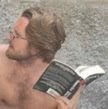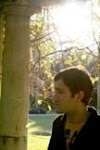
Last Wednesday, I visited the local Church of Christ in Sidney, Nebraska. I was out on business, and well, what else is there to do besides play shuffleboard in the local bar? Don’t get me wrong, I love shuffleboard, but had already frequented the “Silver Dollar” the previous night. It was a medium size building, which gave me hope that I could probably make some connections through the ACU network. When I walked into the auditorium, I was greeted by no less than fifteen to seventeen people filling up one aisle of the church. I knew I was taking a risk by attending, and viewing the sparse faces in the crowd confirmed that I had lost my bet with fate, and could not simply pop in and maintain a relative sense of anonymity. After much explaining and easing of fears as to why a young person would grace their assembly, I was soon welcomed into the small life of the church. They wanted me to lead singing, and while, I love to sing the old songs, I have never been graced with a confidence of pitch to actually lead worship. Where’s Daniel Wheeler when you need him?
The irony of the situation is that I have great confidence in my speaking/preaching ability, but judging from the lesson of that night, I could in no good faith offer up words of exhortation, exegesis, or worship that would gel with the firm convictions in Biblical authority and inerrancy, not to mention a wonderful assurance that interpretation of the Bible is straightforward and is not mediated by any whims of culture, intelligence, or history that the Church holds. This realization made me feel like a voyeur, or a PhD candidate in rhetoric studying the “heuristics” of a small time denomination in a small town. I felt more a sense of the sovereignty of the community than a sense of an impoverished theology bent solely on getting to Heaven. Which in turn, made me feel like the typical liberal, forever tolerant and a respecter of persons. To their delight, I told them that I would return next Wednesday night, which I am still planning to do, barring a hankering for shuffleboard. I didn’t want to change them, or explore ways in which, as a community they could broaden their definition of fellowship to include more people than showed up that night. For starters, it is not my community. I don’t feel like it is appropriate to engage in theological discourse where there is a lack of accountability between individuals and communities. To do so would be to come across as foolish as the swindlers (the Prince and Dauphine?) in Huckleberry Finn when they put on mock spiritual revivals. The members of the Church eke out an existence from the ground or at the Cabella’s outdoor headquarters. They solidify their community, not by what they believe, but by simply making the time to show up and be with each other. And although I tell their story in a light that makes Grace abound to all of our foolish human searching, (which reifies my own positions), I do not tell their story in a manner that trivializes what they do when they show up. I do not know where the boundaries of the Church end and begin. I withhold my judgment, at least to their faces, on their quite virulent theology. It just doesn’t seem to be my place to discourse with them.
I tell this story to confess how much our community means to me. Perhaps we are like minded, perhaps we are monolithic in our theology, but I don’t think so. We have diversity, and more importantly, accountability that allows us to engage in discourse. We should never take this for granted, because community is a hard thing to form. I hope we grow together in faith and good works, whatever that means. I hope we build communities with those we see face to face on a regular basis. I hope we are transformed, and I hope we figure this whole thing out, at least for the time being. I’ve started a sermon I want to present the preacher of the Church of Christ in Sidney. When I finish, I’ll post it up here.
Bryce






